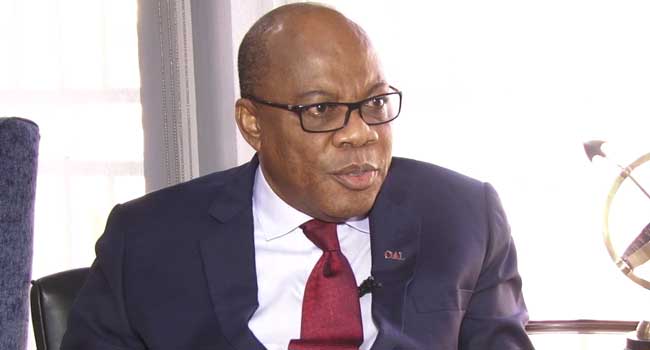Dr. Olisa Agbakoba, a former President of the Nigerian Bar Association (NBA), has raised concerns over constitutional issues regarding law enforcement agencies in Nigeria. In particular, he has written to the National Assembly, drawing attention to factors that he believes are hindering the government’s ability to achieve its objective of abolishing corruption, as outlined in Section 13 of the Nigerian Constitution.
In two separate letters addressed to the Senate and the House of Representatives, dated October 14, 2024, Dr. Agbakoba specifically questioned the legality of the Economic and Financial Crimes Commission (EFCC). He described the EFCC as an “unlawful organisation,” asserting that it was unconstitutionally established. His critique centers on the argument that the framework used to create the EFCC does not align with the constitutional provisions for the establishment of such agencies.
Dr. Agbakoba’s letters emphasized that the existence of the EFCC, in its current form, might be at odds with Nigeria’s constitutional requirements for law enforcement bodies. He urged the National Assembly to reconsider the legal foundation of the commission and to address the broader issues surrounding the enforcement of anti-corruption laws in the country.
By raising these concerns, Dr. Agbakoba aims to stimulate a national dialogue on the constitutionality of law enforcement agencies and the effectiveness of Nigeria’s anti-corruption efforts. His call for action also reflects a growing sentiment among legal experts and civil society groups who believe that legal reforms are necessary to strengthen the fight against corruption in Nigeria.
The letters are likely to prompt significant debate in both chambers of the National Assembly, as lawmakers weigh the constitutional arguments against the need for strong anti-corruption institutions.
“I very strongly believe the EFCC is unconstitutionally established. The powers under which it was established go beyond the powers of the National Assembly. The EFCC is an unlawful organization,” Agbakoba, a former President of the Nigerian Bar Association, said.
The letters were addressed separately to the Deputy Senate President, Senator Barau Jibrin; and Deputy Speaker of the House of Representatives, Hon. Benjamin Kalu. The Deputy Speaker doubles as the Chairman, House Committee on Constitution Review, while Senator Jibrin is Chairman, Senate Committee on Constitution Review.
Agbakoba noted that he was delighted to note that many states had finally taken it upon themselves to challenge the constitutionality of the EFCC, saying, “This will put to rest the question relating to the validity of the EFCC.”
“I write to draw attention to certain constitutional issues on matters related to law enforcement agencies. As you are obviously aware, the fundamental objective of the government is to abolish corruption. But from my observation, there is no harmony amongst law enforcement agencies on corruption. They all appear to be working at cross purposes.
“This has been confirmed by the Supreme Court in so many cases. The Supreme Court has consistently sanctioned the EFCC for its conduct and questioned if the EFCC can in fact validly do what it does. I will go further to say that I very strongly believe the EFCC is unconstitutionally established. The powers under which it was established go beyond the powers of the National Assembly. The EFCC is an unlawful organization.
“I am very delighted to note that many states have finally taken it upon themselves to challenge the constitutionality of the EFCC. This will put to rest the question relating to the validity of the EFCC. Whilst we await the decision of the Supreme Court as the final court on the matter, I respectfully request that the Senate convene a public hearing to consider these constitutional issues.
“Such a hearing would provide an invaluable platform for stakeholders to discuss the reforms needed to strengthen Nigeria’s legal and institutional frameworks for law enforcement and anti-corruption, which will meet the stated and laudable objective of the government to abolish corruption as stated in Section 13 of the Constitution.
“I trust that, under your capable leadership, the Senate Constitution Review Committee will give these matters urgent attention in the interest of our nation’s development.
“Thank you for your consideration of this important matter. I look forward to your response.”
The letter to the Deputy Senate President, titled, “Urgent Legislative Attention on Constitutional Reforms Relating to Law Enforcement Agencies and Anti-Corruption Efforts”, reads: “I commend you for the remarkable leadership you have demonstrated as Chairman, Senate Constitution Review Committee, particularly in advancing the government’s reform agenda through a robust constitutional framework. Your efforts to strengthen the legal infrastructure underpinning the nation’s development programs are indeed commendable.
Dele Oyewale, spokesman of EFCC, could not be reached for comments as of the time of filing this report as multiple attempts to reach him via telephone did not yield result.




